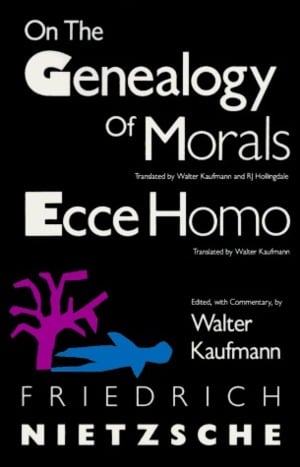
On the Genealogy of Morality (Chap. 2.4) Friedrich Nietzsche
На этой странице вы найдете полный текст песни "On the Genealogy of Morality (Chap. 2.4)" от Friedrich Nietzsche. Lyrxo предлагает вам самый полный и точный текст этой композиции без лишних отвлекающих факторов. Узнайте все куплеты и припев, чтобы лучше понять любимую песню и насладиться ею в полной мере. Идеально для фанатов и всех, кто ценит качественную музыку.

I was given a hint of the right direction by the question: What, from an etymological perspective, do the meanings of “Good” as manifested in different languages really mean? There I found that all of them lead back to the same transformation of ideas—that everywhere “noble” and “aristocratic” in a social sense is the fundamental idea out of which “good” in the sense of “spiritually noble,” “aristocratic,” “spiritually high-minded,” “spiritually privileged” necessarily develops, a process which always runs in parallel with that other one which finally transforms “common,” “vulgar,” and “low” into the concept “bad.” The most eloquent example of the latter is the German word “schlect”[bad] itself, which is identical with the word “schlicht” [plain]—compare “schlectweg” [simply] and “schlechterdings” [simply]—and which originally designated the plain, common man, still without any suspicious side glance, simply in contrast to the noble man. Around the time of the Thirty Years War approximately, hence late enough, this sense changed into the one used now.* As far as the genealogy of morals is concerned, this point strikes me as a fundamental insight; that it was first discovered so late we can ascribe to the repressive influence which democratic prejudice in the modern world exercises concerning all questions of origin. And this occurs in what appears to be the most objective realm of natural science and physiology, a point which I can only hint at here. But the sort of mischief this prejudice can cause, once it has become unleashed as hatred, particularly where morality and history are concerned, is revealed in the well-known case of Buckle: the plebeian nature of the modern spirit, which originated in England, broke out once again on its home turf, as violently as a muddy volcano and with that salty, over-loud, and common eloquence with which all previous volcanoes have spoken.—*
Thirty Years War: a prolonged, devastating, and inconclusive European war over religion (1618-1648).
Buckle: Henry Thomas Buckle (1821-1862), English historian, author of The History of Civilization in England. Buckle’s attempt to explain historical events as the results of certain mathematically precise laws generated a great deal of controversy.
Thirty Years War: a prolonged, devastating, and inconclusive European war over religion (1618-1648).
Buckle: Henry Thomas Buckle (1821-1862), English historian, author of The History of Civilization in England. Buckle’s attempt to explain historical events as the results of certain mathematically precise laws generated a great deal of controversy.
Комментарии (0)
Минимальная длина комментария — 50 символов.












